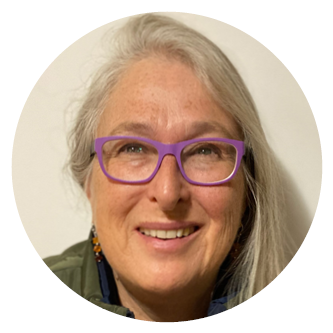Bridging the gap: Revolutionising specialist palliative medicine training in rural Australia
An article written by Dr Christine Sanderson
In the vast expanse of rural and remote Australia, where communities are scattered across enormous distances and diverse geography, a quiet crisis is unfolding in palliative care, the impact of which is under-appreciated. While metropolitan areas enjoy a plethora of resources and support, country regions are left grappling with significant disparities when it comes to accessing quality end-of-life care.
Approximately 7 million Australians, comprising 28% of the population, call country areas home. Yet, the availability of palliative care services in these regions is far from adequate. Enter the Rural and Remote Institute of Palliative Medicine (RRIPM) project, which aims to create workforce training opportunities in these under-served regions and communities.
In mid-2023, the Australian and New Zealand Society of Palliative Medicine (ANZSPM) secured a FATES grant from the Department of Health and Aged Care, under the auspices of the Royal Australasian College of Physicians, to spearhead the RRIPM project. A series of consultations with stakeholders across the sector, including online interviews, surveys and face-to-face workshops, has led to an understanding of the barriers and challenges experienced by specialists and trainees working or seeking to train in the rural palliative medicine sector.
To date, specialist training in palliative medicine has almost exclusively been based in city locations. Sufficient opportunity to train rurally does not currently exist despite medical graduates and palliative medicine trainees expressing an interest in rural career pathways. Geographic isolation hinders the ability of rurally based service providers to effectively network and support each other in the absence of a coordinating body, and this results in duplicated effort and missed opportunities to share the recruitment, education, and supervision of trainees. And accreditation of rural training sites is problematic as eligibility criteria has not been tailored for rural practice.
Furthermore, the fragmented and unreliable nature of national and jurisdictional funding compounds the crisis, hindering the development of a sustainable training pipeline for rural specialists. The result is an ongoing threat to the viability of rural services and the professionals who sustain them.
Nevertheless, amidst this adversity lies an opportunity for transformation. The establishment of a Rural and Remote Institute of Palliative Medicine promises to usher in a new era. The specific ways that RRIPM could be a game changer include expediting site accreditation of eligible rural training locations, modernising supervision requirements, identifying rural-specific competencies, developing integrated rural terms, and aligning specialist and generalist training pathways to ensure a functioning training pipeline for rural palliative care. Additionally, by networking educational offerings, mentoring and supporting rural multi-disciplinary team members and tailoring funding mechanisms for rural training positions, RRIPM is looking to transform how specialist palliative medicine training unfolds outside metropolitan hubs.
The collaborative nature of RRIPM seeks to foster a sense of solidarity among rural healthcare providers, enabling them to pool resources, share knowledge, and deliver seamless care to their communities. Through mentorship, networking, and interdisciplinary support, RRIPM is aiming to nurture a thriving ecosystem of rural palliative care professionals.
The implications of all this extend far beyond the confines of hospital facilities. Improved access to specialised care means patients can receive dignified end-of-life support in familiar surroundings without the need to travel long distances. By training more doctors in the bush, the need for expensive fly-in-fly-out services can be reduced. This translates to substantial savings for healthcare budgets, allowing resources to be locally allocated more effectively.
Ultimately, the RRIPM project represents real optimism for rural Australia, promising to close the gap between city and country in the realm of palliative care. Through secure funding and sector collaboration, we have the power to ensure that every individual, regardless of their postcode, receives the quality end-of-life care they deserve.
To find out more about the current rural palliative medicine landscape, read Beyond the Burbs: Specialist Palliative Medicine Training in Rural Australia – A Scoping Review on the RRIPM page of the ANZSPM website here.
Author

Dr Christine Sanderson
Specialist in Palliative Medicine, Alice Springs Hospital
Medical Director, Territory Palliative Care - Central Australia
Clinical Lead, RRIPM Project